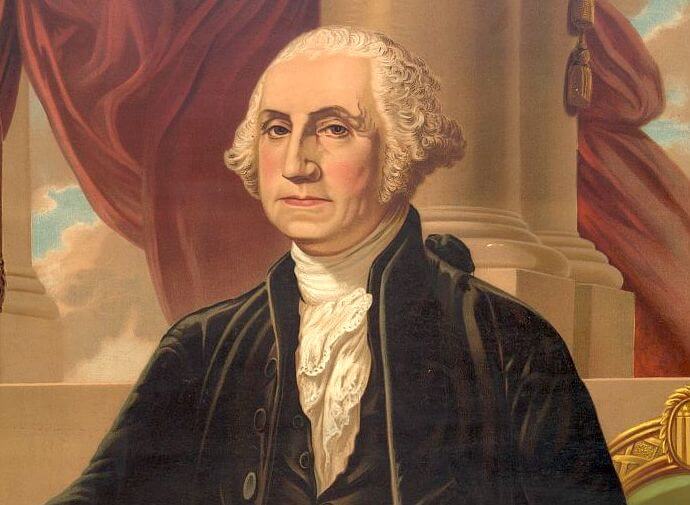When is President’s Day?
Monday, February 20, 2023, is a federal holiday. Most federal employees will have the day off from work (with pay). For many readers, it is possible that may be the most important fact about the third Monday in February. There are now 11 federal holidays that will be celebrated in 2023. Juneteenth was the latest federal holiday created.
Remembering George Washington on President’s Day

President George Washington’s birthday was traditionally celebrated on February 22. That date was selected for one reason: it was our first president’s birth date.
In 1879, Arkansas Senator Steven Wallace Dorsey proposed that Washington’s birthday be designated as a federal holiday. Congress approved and President Rutherford B. Hayes signed the bill into law. It only applied to Washington, DC initially but the holiday was expanded to include the entire country by 1885.
So Long George Washington and Welcome to President’s Day
Our view of history changes over time and societies strive to make the past fit in today’s world.
To create a more perfect world, or to commemorate more events without creating too many more paid holidays, we no longer celebrate George Washington’s birthday on February 22nd.
Perhaps most people do not really care. Early American history is often an afterthought in education. Instead, we focus on more recent events instead of learning about a bunch of old dead white guys whose experiences and views did not reflect some 21st-century values. Fortunately, we are able to still enjoy the fruits of their labors and sacrifices in creating one of the world’s great republics with strong restraints in place to protect individual freedom and liberty.
Creating President’s Day
The holiday became more popularly known as Presidents’ Day after it was moved to a new date with the Uniform Monday Holiday Act (Public Law 90-363 (82 Stat. 250)) ).
The decision to change the date of the holiday was a topic of debate in Congress.
Some of our elected representatives believed moving the date would cheapen the purpose of the holiday. Others saw it as a way to not only give federal employees more time off but to make the celebrations more meaningful by having more time to celebrate. The bill passed. President Lyndon B. Johnson signed it in 1968. It became effective in 1971 during the Nixon administration.
The official name of the holiday, according to the Uniform Monday Holiday Act, is Washington’s birthday which is why the Office of Personnel Management (OPM) still uses the name for the holiday.
The purpose of the bill, according to a signing statement by President Johnson, was:
[T]o ensure a minimum of five regularly recurring 3-day weekends each year for Federal employees. The costs will be offset to an important degree by avoiding disruptions of Government business through Monday observance of holidays.
The Uniform Monday Holiday Act combined two holidays: Abraham Lincoln’s Birthday, February 12, and Washington’s Birthday, February 22.
Although the new date, the third Monday of February, was still called Washington’s Birthday, the popular name became Presidents’ Day. Many states had been celebrating Abraham Lincoln’s birthday on February 12 but Congress had not recognized it as a federal holiday.
As President Johnson noted, the holiday is not just for the benefit of federal employees. Instead of focusing on the accomplishments of George Washington and his efforts in creating a new government of former colonies:
The private employer will enjoy similar gains in efficiency. The Monday holiday will stimulate greater industrial and commercial production, sparing business and labor the penalty of midweek shutdowns.
So, perhaps as envisioned by President Johnson, we can now use this time to enjoy the holiday sales events on the third Monday in February. It’s a good time to buy a new car or mattress and to spur the American economy. Most of us have done this at one time or another. Remembering Valley Forge or recalling the accomplishments of Presidents Washington or Lincoln will not usually spur the economy, but buying a new Ford or BMW can make someone happy and will contribute to our economic health.
What Did George Washington Do?
George Washington was born in Westmoreland County, Virginia in 1732. He died on December 14, 1799, at Mount Vernon, Virginia. He is often referred to as the “Father of His Country.”
He was the first president of the United States (1789-1797). He commanded the Continental Army during the American Revolution (1775–1783) and presided over the convention for drafting the U.S. Constitution.
During the American Revolution, George Washington led the colonial forces to victory over the British and became a national hero. In 1787, he was elected president of the convention that wrote the U.S. Constitution. Two years later, he became America’s first president.
Memorable Quotes from George Washington
A primary object should be the education of our youth in the science of government. In a republic, what species of knowledge can be equally important? And what duty more pressing than communicating it to those who are to be the future guardians of the liberties of the country?
If freedom of speech is taken away, then dumb and silent we may be led, like sheep to the slaughter.
However [political parties] may now and then answer popular ends, they are likely in the course of time and things, to become potent engines, by which cunning, ambitious, and unprincipled men will be enabled to subvert the power of the people and to usurp for themselves the reins of government, destroying afterwards the very engines which have lifted them to unjust dominion.
It is better to be alone than in bad company.
https://www.goodreads.com/author/quotes/4356.George_Washington



